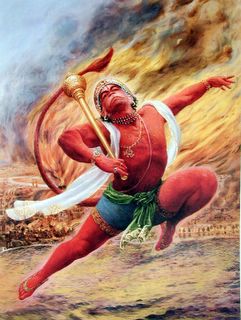Diwali is a festival of joy, splendor, brightness and happiness. It is the festival of lights and is celebrated with great enthusiasm by all Indians all over the world. The uniqueness of this festival is its harmony of five varied philosophies, with each day to a special thought or ideal. People celebrate each of its five days of festivities with true understanding, it will uplift and enrich the lives.
The First Day of Diwali - Dhanteras
The first day of Diwali is called Dhanvantari Triodasi or Dhanwantari Triodasi also called Dhan Theras. It is in fact the thirteenth lunar day of Krishna Paksh, the dark forthnight of the month of Kartik. On this day, Lord Dhanwantari came out of the ocean with Ayurvedic for mankind. This day marks the beginning of Diwali celebrations. On this day at sunset, Hindus should bathe and offer a lighted deeya with Prasad (sweets offered at worship time) to Yama Raj, the Lord of Death and pray for protection from untimely death. This offering should be made near a Tulsi tree, the Holy Basil or any other sacred tree that one might have in their yard. Dhanteras falls two days before Diwali. The word "Dhan" means wealth. God Yama is worshiped on this day to provide prosperity and well being. On this day, houses and business premises are renovated and decorated. Entrances are made colorful with lovely traditional motifs of Rangoli designs to welcome the Goddess of wealth and prosperity. To indicate her long-awaited arrival, small footprints are drawn with rice flour and vermilion powder all over the houses. Lamps are kept burning all through the nights.
Believing this day to be auspicious women purchase some gold or silver or at least one or two new utensils. New Dhan or some form of precious metal is bought as a sign of good luck. "Laxmi-Puja" is performed in the evenings when tiny Diyas of clay are lighted to drive away the shadows of evil spirits. "Bhajans"-devotional songs- in praise of Goddess Laxmi are sung.
Legends
According to legend, when the gods and demons churned the ocean for Amrit or nectar, Dhanavantri (the physician of the gods and an incarnation of Vishnu) emerged carrying a jar of the elixir.
A very interesting story about this day is of the sixteen year old son of King Hima. As per his horoscope he was doomed to die by a snake-bite on the fourth day of his marriage. On that particular fourth day of his marriage his young wife did not allow him to sleep. She laid all the ornaments and lots of gold and silver coins in a big heap at the entrance of her husband's boudoir and lighted innumerable lamps all over the place. And she went on telling stories and singing songs.
When Yam, the god of Death arrived there in the guise of a Serpent his eyes got blinded by that dazzle of those brilliant lights and he could not enter the Prince's chamber. So he climbed on top of the heap of the ornaments and coins and sat there whole night listening to the melodious songs. In the morning he quietly went away. Thus the young wife saved her husband from the clutches of death. Since then this day of Dhanteras came to be known as the day of "Yamadeepdaan" and lamps are kept burning throughout the night in reverential adoration to Yam, the god of Death.
Celebrations
"Lakshmi-Puja" is performed in the evenings when tiny diyas of clay are lighted to drive away the shadows of evil spirits. "Bhajans"-devotional songs- in praise of Goddess Laxmi are sung and "Naivedya" of traditional sweets is offered to the Goddess. There is a peculiar custom in Maharashtra to lightly pound dry coriander seeds with jaggery and offer as Naivedya.
In villages cattle are adorned and worshiped by farmers as they form the main source of their income. In south cows are offered special veneration as they are supposed to be the incarnation of Goddess Lakshmi and therefore they are adorned and worshiped on this day.

No comments:
Post a Comment